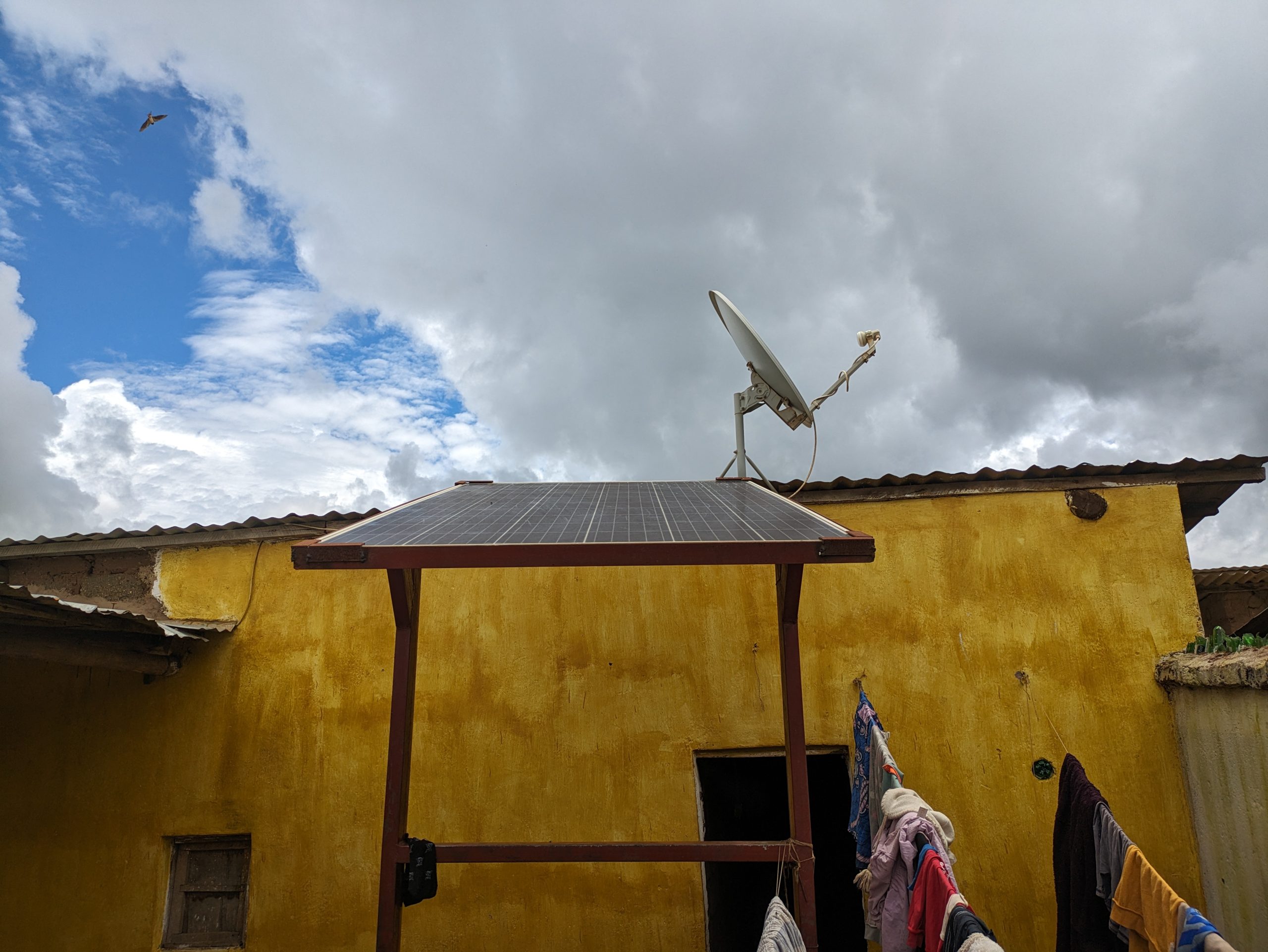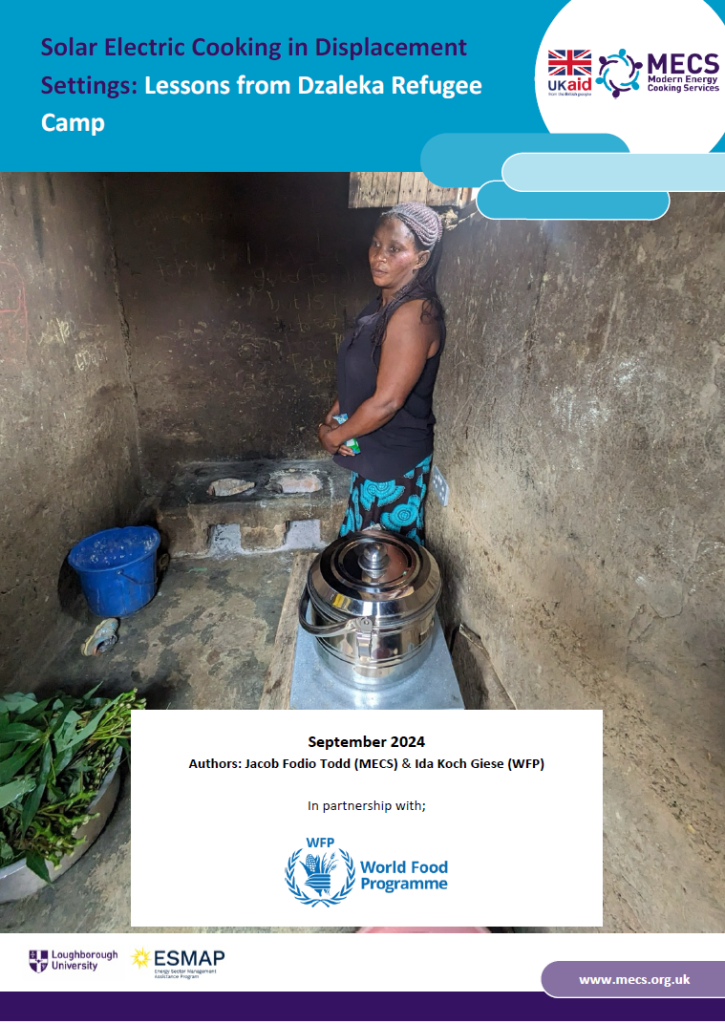
- Date
- 13th September 2024
- Categories
- electric cooking, General, Launch
A new report by Jacob Fodio Todd (MECS) and Ida Koch Giese (World Food Programme) discusses findings from an investigation into the progress of a three-year solar electric stove pilot project that started in September 2022 in 61 households and a day-care centre in Dzaleka Refugee Camp, Dowa District, Malawi.
Through household surveys and focus group discussions, the study found that although the Pesitho ECOCA devices were well-received by beneficiaries and several benefits were reported, including cost savings and health benefits, only 20% (12 households) of the cookers were still fully operational and in use 18 months later. A further 29% of the devices were able to provide solar electric charging to beneficiaries’ digital devices, such as mobile phones.
In contrast, five of six solar electric cookstoves installed in an institutional setting, a day-care centre, were in regular and consistent use, by a small cohort of trained beneficiaries, who prepared simple foods for the duration of the installation period with few reported problems. The devices were extremely well regarded by the staff, with benefits from cooking, medicinal and electric device charging perspectives.
The pilot, intended to start in 2020, was heavily impacted by Covid-19 restrictions, which delayed the start date and several factors were identified as potentially contributing to the limited lifespan of solar electric cookstoves at the household level. These include insufficient training in maintenance and upkeep, overburdensome use, inadequate provision of aftercare and technical assistance, and a reported lack of cookstove robustness, particularly with regards to the battery.
This study discusses the solar electric pilot project background, focus group discussion, baseline and follow-up survey findings, and concludes with recommendations based on project learnings, for future initiatives of similar character.
Access project highlights by taking a visual journey via the accompanying photo story:
………………………………….
Featured image: A solar panel installed in a beneficiary compound, Dzaleka Refugee Camp, Malawi (photo credit: Jacob Fodio Todd, MECS).
